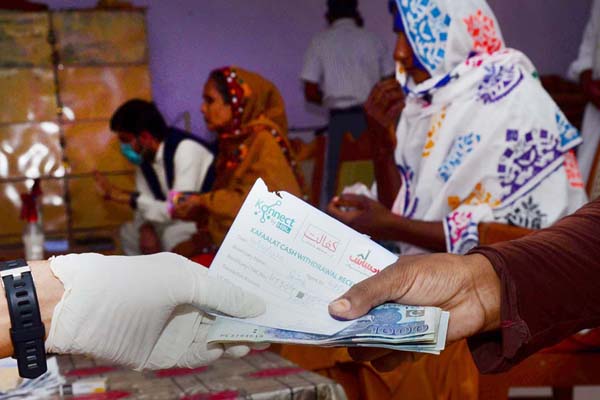As one of the emerging countries of the world, Pakistan has almost 24 percent of their residents below the poverty line; people struggling every day to make ends meet and families going to sleep on empty stomachs, day after day. With the Corona pandemic enforcing a lockdown in most countries, including Pakistan, these people are struggling immensely to keep from starving to death. “The country requires a rapid response to protect its poor from becoming even worse off,” says the World Bank in a blog post.
Granted, the lockdown is a necessity at this point and many lives will be at stake if this virus spreads even more, but for the people below the poverty line in countries like Pakistan, for people who need access to health and social programs on a regular basis, for women, “who are already disadvantaged in the labour force,” these times have been extremely trying. Fortunately, the Government of Pakistan, along with the World Bank are working tirelessly to make conditions better for these people.
One of the first measures our Government took was to reinforce the Benazir Income Support Program (BISP). Additional support has been given to the 4.5 million women attached to this program and more and more continue to receive its benefits every day.
The Government has also added 7.5 million more families in its Ehsaas Kafalat program. This program has increased their annual budget by 85 percent. 46 million requests have been sent in via SMS and 7.3 million of those have been identified and will receive cash funds of up to Rs. 12,000.
With the BISP, Ehsaas Kafalat, and many other relief funds set up in the country, Pakistan has one of the largest and most effective social safety net systems in South Asia. These have quick and easy registration systems put into place and, “their online linkage to the national ID database helps prevent duplicate payments while ensuring transparency.”
These systems, while very good as they are, could always do with a little bit of improvement.
A shift towards a proposed dynamic system for the National Socio-Economic Registry (NSER) will make updating the Governments databases faster and easier. This, along with having a centralised database to avoid duplicate entries and other errors would help streamline these kinds of relief processes and would aid in any decisions regarding these funds in the future.
With that being said, many people across Pakistan have these relief funds to thank for, for being able to make it through this lockdown. Mr Sarim Muhammed, a resident of Quetta says, “I’ve been unemployed for about a month because of coronavirus. With this aid that the government has given us, it covers the costs of things we need for Ramadan.” Ms Sakina is also thankful for the Ehsaas Kafalat program and says, “My husband is ill and has to stay at home. I am so grateful that I have received Rs. 12,000 today, it will help us get by for a full month. We are thankful that the government has supported us and stands with us at a time like this.”
These funds, along with helping many families get through their lives, also help many stay away from crimes and unlawful ways of gaining this money. If not for these relief programs, many would have looked towards a life of crime to help keep their families alive.





 Microsoft is offering $100,000 to anyone who can hack its Azure Sphere OS
Microsoft is offering $100,000 to anyone who can hack its Azure Sphere OS